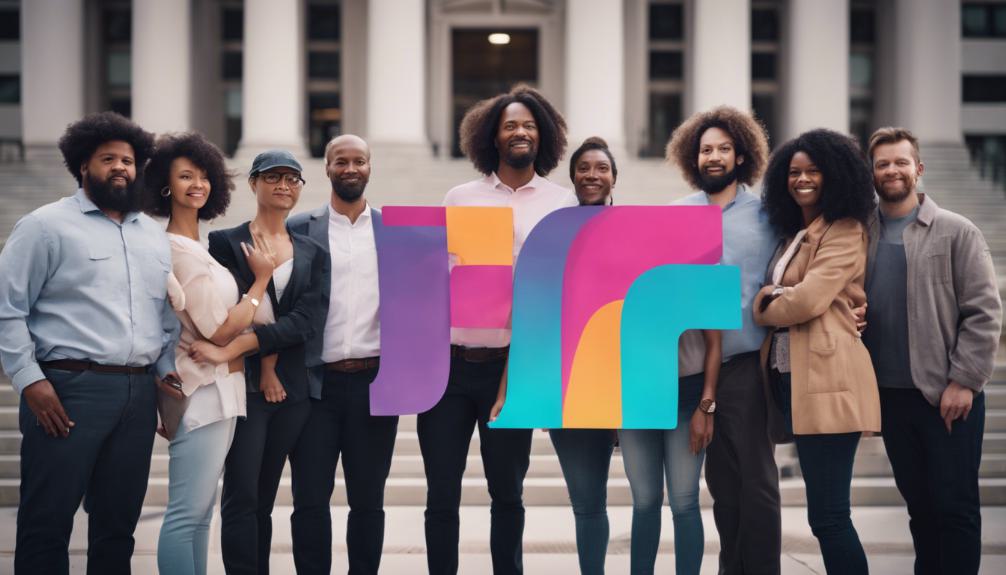Lyft Faces Surge in Assault Lawsuits
The recent surge in assault lawsuits against Lyft raises considerable concern regarding the safety and accountability mechanisms in place within the ride-sharing industry. As a company that has been integral to the urban mobility revolution, Lyft's handling of over 4,000 allegations of sexual assault between 2017 and 2019 marks a critical juncture in its operational ethos and public perception. The mounting legal challenges and the victims' outcry for justice invite a broader conversation on the ethical responsibilities of ride-sharing platforms. This unfolding scenario poses an imperative question: How will Lyft navigate this tumultuous period, and what implications will it have for the future of ride-sharing services?
Key Takeaways
- Lyft is facing 17 new lawsuits, including 14 sexual assault claims and 3 physical assault allegations.
- Reports of sexual abuse during rides have surged, with Lyft receiving over 4,000 reports between 2017 and 2019.
- Victims allege Lyft provided insufficient assistance post-assault, prioritizing profit over safety.
- Critics call for enhanced safety measures, such as biometric scans and thorough background checks, in response to the rise in assault reports.
Ride Share Safety Concerns

The escalating usage of ride-sharing apps has been shadowed by mounting concerns over passenger safety, particularly in relation to reports of sexual and physical assaults. As these platforms become integral to urban mobility, the safety of those who use them—passengers and drivers alike—has emerged as a critical issue. With the surge in reports of misconduct, it is clear that ensuring the welfare of every individual who relies on these services is not just a matter of corporate responsibility but a communal concern that demands immediate and concerted action. The community's trust in these services hinges on the ability to travel without fear, underscoring the need for stringent safety protocols and a transparent, supportive response to any reported incidents.
Assault Lawsuits Surge

Amidst a rising tide of concern over passenger safety, Lyft is now grappling with a significant upsurge in assault lawsuits filed by users across the nation. The recent surge in legal actions emphasizes the alarming frequency of reported assaults, including both sexual and physical allegations, casting a shadow on Lyft's commitment to the safety and well-being of its passengers. With 17 new lawsuits, including 14 claims of sexual assault, victims assert that Lyft's response to such incidents has been woefully inadequate, focusing more on preserving the company's image than on providing the necessary support and safety measures. This situation underscores the urgent need for ride-share companies like Lyft to prioritize the protection of their users above all, fostering a safer environment for everyone utilizing their services.
Lyft's Controversial Response

How has Lyft's handling of assault reports drawn criticism from victims and observers alike? The response from Lyft to the surge in assault lawsuits has been met with widespread disapproval. Victims and their advocates have pointed out that the measures taken by Lyft, including minimal assistance like account suspensions or nominal compensation, are insufficient and fail to address the severity of the incidents reported. Critics argue that the company's actions reflect a prioritization of profit over the safety and well-being of its passengers and drivers. Additionally, Lyft's policy of not sharing user information has been criticized for hindering investigations, further exacerbating the situation and leaving many to question the company's commitment to user safety.
Joining the Class Action

Recognizing the widespread criticism of Lyft's response to assault reports, individuals affected by such incidents now have the opportunity to join a class action lawsuit against the company. This lawsuit represents a collective effort to hold Lyft accountable for its alleged failure to protect passengers and adequately respond to assault claims. Participation in the class action is accessible to those directly impacted, with no initial costs involved. By banding together, victims can amplify their voices, seeking justice and potentially instigating more rigorous safety measures within the ride-sharing industry. Joining the class action also signifies a step towards healing, offering individuals a sense of solidarity and support in handling the aftermath of such traumatic experiences.
Seeking Additional Resources

Victims and concerned individuals frequently seek additional resources to understand their rights and options following incidents of assault within the Lyft platform. In response to the alarming increase in such reports, it's vital to direct those affected toward extensive support services and legal guidance. This might include counseling for trauma, legal advice on how to proceed with claims, and information on joining collective legal actions against entities failing to safeguard their users. Moreover, educational resources that empower individuals to recognize and mitigate risks associated with ride-share services are invaluable. Advocacy groups, legal firms specializing in assault cases, and dedicated hotlines serve as pivotal resources in maneuvering the aftermath of such distressing experiences, ensuring victims are not left to cope in isolation.
Frequently Asked Questions
How Can Victims of Assault in a Lyft Ride Prove Their Case in Court?**
Victims of assault in a ride-sharing context must gather thorough evidence to substantiate their claims in court. This includes retaining any communication with the driver, witness testimonies, medical reports substantiating injuries, and, where available, video footage from the vehicle or surrounding areas. Promptly reporting the incident to law enforcement and the ride-share company is essential. Legal representation can guide victims through the process of collecting relevant evidence and moving through the legal system effectively.
This Question Addresses the Evidence and Legal Strategies Necessary for a Victim to Successfully Navigate the Complexities of the Legal System, Which May Not Be Covered in the General Sections Focusing on the Broader Issues and Procedural Steps of Joining a Class Action or the Company's Response.
To effectively navigate the complexities of the legal system as a victim of assault in a ride-share scenario, it is imperative to compile thorough evidence and adopt a robust legal strategy. This typically involves gathering ride details, communication records, eyewitness testimonies, and any available forensic evidence. Engaging experienced legal counsel specialized in assault cases can greatly enhance the prospect of achieving justice. Victims should also be prepared for the emotional aspects of legal proceedings.
What Are the Psychological Impacts on Victims Post-Assault, and Are There Resources Available Specifically for Them?**
The aftermath of an assault, akin to a storm ravaging a serene landscape, leaves profound psychological scars on its victims. Survivors often grapple with PTSD, anxiety, and depression, necessitating targeted support and resources. Organizations like RAINN offer specialized counseling and therapy, guiding victims through their healing journey. This compassionate assistance not only fosters recovery but also empowers individuals to reclaim their sense of safety and well-being in the wake of trauma.
This Question Delves Into the Long-Term Effects of Such Traumatic Experiences on Victims, Exploring Both the Emotional Aftermath and the Availability of Mental Health Support, Which Might Not Be Detailed in Sections Discussing the Legal or Procedural Aspects of Lawsuits.
The question examines the enduring emotional and psychological consequences experienced by victims of traumatic incidents, highlighting the importance of accessible mental health support. It underscores the necessity for extensive care strategies that address both immediate and long-term needs of individuals affected. Amidst rising concerns, the emphasis on mental health resources becomes critical, advocating for a supportive framework that aids in the healing process and reinforces the resilience of survivors.
How Do Lyft's Safety Measures Compare to Those of Other Ride-Share Companies?**
Lyft, among ride-share companies, has implemented various safety measures, yet reports indicate a significant challenge in curbing sexual assaults, with over 4,000 incidents reported between 2017 and 2019. This statistic is alarming and underscores the need for enhanced safety protocols across the industry. While Lyft has introduced features like in-app emergency assistance, the effectiveness of these measures compared to industry counterparts remains a critical concern for users seeking secure transportation solutions.
Conclusion
In the shadow of innovation's bright dawn, a darker narrative unfolds, where the convenience of ride-sharing casts long, unsettling shadows of vulnerability. The surge in lawsuits against Lyft, stemming from allegations of assault, symbolizes a crossroads for urban mobility's future, demanding a pivotal shift towards prioritizing passenger and driver safety. This critical juncture beckons not only for technological advancements but also for moral compass recalibration, ensuring the pathway forward is illuminated by the guiding light of security and trust.

This post has been generated by AI and was not reviewed by editors. This is Not legal advice. Please consult with an attorney.
